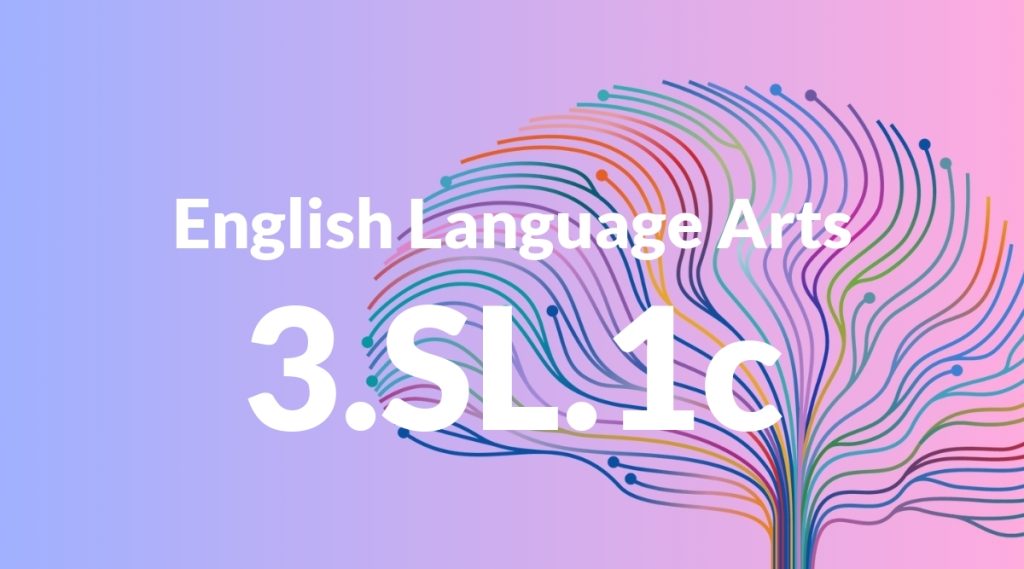Standard: 3.SL.1c – Ask questions to check understanding of information presented, stay on topic, and link their comments to the remarks of others.
Grade level: Grade 3
Subject: English Language Arts
Domain: Speaking & Listening
Teacher Overview
This standard emphasizes the importance of interactive discussion skills. Students learn to ask questions for clarity, stay on topic, and connect their comments to others’ remarks. Mastering this standard is crucial for effective communication and collaborative learning. Students should have basic listening skills and experience in group discussions. They should know how to ask simple questions and understand the importance of taking turns while speaking.
After mastering this standard, students will be able to lead group discussions, summarize key points, and provide constructive feedback, which are essential skills for higher-level communication and collaboration.
Common Misconception 1
Some students may think that asking questions is the same as interrupting. This misconception arises because they might not yet distinguish between disruptive interruptions and constructive questions.
Intervention 1
Model appropriate times to ask questions during discussions and practice with role-playing activities where students can see examples of both interrupting and constructive questioning.
Common Misconception 2
Another common misconception is that staying on topic means not asking any questions. This belief can limit their engagement and understanding during discussions.
Intervention 2
Encourage students to ask questions that are directly related to the topic. Use examples to show how relevant questions can enhance the conversation and understanding of the topic.
Prerequisite Knowledge
Students should have basic listening skills, the ability to ask simple questions, and some experience participating in group discussions.
Subsequent Knowledge
Students will develop more advanced communication skills, including the ability to summarize discussions, provide constructive feedback, and lead group conversations.
Instructional Activities
- Role-playing different discussion scenarios
- Group storytelling with Q&A sessions
- Peer interviews on a given topic
- Class debates with structured questioning
- Interactive read-aloud sessions with follow-up questions




